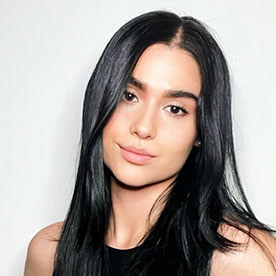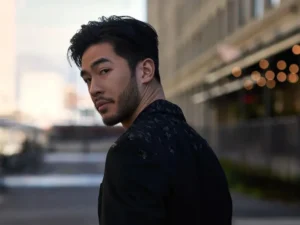Pablo Escobar’s name is a symbol of power, wealth, and violence. As the head of the infamous Medellín Cartel, Escobar was one of the most dangerous and wealthy criminals in history. But while much of his story is well-known, there’s one person who’s managed to stay out of the spotlight for most of her life: his daughter, Manuela Escobar. Growing up in a world of luxury, fear, and violence, Manuela’s life after the fall of the Medellín Cartel has been one of survival and privacy, far away from the chaos her father left behind.
Growing Up with Pablo Escobar
Before diving into Manuela Escobar’s life after the fall of the Medellín Cartel, it’s important to understand what her childhood was like. Born in 1984, Manuela was only a child when her father was at the height of his power. The Escobar family lived in luxury—private jets, mansions, and the kind of wealth most people could only dream of. But with that wealth came constant danger. Pablo Escobar wasn’t just a drug lord—he was a man who inspired fear. Violence and death were never far away. For Manuela, life was a mix of extremes. One moment, she’d be enjoying the comforts of a millionaire’s lifestyle, and the next, she’d be living in fear of an attack from a rival cartel or law enforcement. While her father’s wealth and influence shielded her from many dangers, it couldn’t protect her from the emotional toll of living in such a chaotic world.
The Fall of the Cartel
In 1993, everything changed. Pablo Escobar’s reign came to an end when he was killed by Colombian authorities. With his death came the collapse of the Medellín Cartel, the empire that had shaped the Escobar family’s life for years. For Manuela and her family, this was the start of a new chapter—one filled with uncertainty and danger. The fall of the Medellín Cartel wasn’t just about losing wealth—it was about the complete unraveling of everything the Escobars had known. With Pablo dead, Manuela’s family had to flee Colombia. The once powerful Escobars were now fugitives, constantly on the move and forced to live under false identities. For Manuela, this meant being ripped from the only life she had ever known and facing a world where she was no longer shielded by her father’s empire.

Escaping and Hiding
After her father’s death, the Escobar family in hiding tried to escape the legacy of violence and danger that had surrounded them. They initially fled to Germany, and later to Argentina, where they lived under assumed names, trying to blend in with everyday people. While her brother, Juan Pablo Escobar, would later become known as Sebastián Marroquín, an author and public speaker, Manuela took a different path. She stayed out of the public eye, far removed from the media circus that followed her family. Living in hiding wasn’t easy, and it certainly wasn’t the life Manuela had been used to. Once accustomed to luxury, she now had to adjust to a much simpler, quieter existence. For a child who had grown up with so much, the transition to a normal, low-profile life must have been incredibly difficult.
A Quiet, Private Life
What stands out about Manuela Escobar’s life after the fall of the Medellín Cartel is how little we know about her today. Unlike Sebastián, who has written books and spoken about his family’s history, Manuela has chosen to stay away from the media. She has lived most of her life out of the public eye, and for good reason—she wants nothing to do with the legacy of violence and crime that her father left behind. In a world obsessed with scandal and celebrity, Manuela Escobar today has chosen a life of anonymity. She isn’t seeking fame or attention. Rather, she seems to want the peace and normalcy that was denied to her as a child. Her decision to avoid the spotlight is a reflection of her desire to distance herself from her father’s actions and live a life that is hers alone.
Family Bonds
Even though Manuela Escobar has remained largely silent about her past, her relationship with her brother Sebastián is an important part of her story. Sebastián, who was older, has done much of the public work in trying to come to terms with their father’s legacy. He has become an advocate for peace and reconciliation, speaking out about the harms done by the cartel and the impact it had on their family. Despite their different paths, Sebastián has spoken about how close he and Manuela were growing up. They both had to endure the same hardships and losses, but it’s clear that their responses to those experiences have been different. Sebastián has shared his side of the story through books and speeches, but Manuela has stayed private, avoiding the public discussions about their father’s empire. It’s a reminder that while the Escobar children’s lives were shaped by the same man, they chose very different ways of dealing with the aftermath.
The Emotional Toll of the Past
Though Manuela Escobar’s life after the fall of the Medellín Cartel is mostly unknown, it’s easy to imagine the emotional challenges she faced. Losing her father in such a public and violent way, along with the constant pressure of being associated with his name, likely took a heavy toll on her. It’s likely that growing up under such intense circumstances—filled with fear, instability, and loss—had long-lasting effects on her sense of self. While Sebastián has worked to understand their father’s impact and even spoken publicly about it, Manuela has chosen a quieter path. She may have felt that the best way to heal from her father’s legacy was to live a life removed from it altogether. The emotional scars of her past are something only she truly understands, but it’s clear that Manuela Escobar’s childhood was far from ordinary.
Living with the Legacy
Even today, the legacy of Pablo Escobar still follows Manuela. Though she’s kept a low profile, the public’s fascination with her father’s empire means that she can never completely escape the spotlight. There are constant reminders of the violence and chaos her father’s actions caused. But perhaps in choosing to live in the shadows, Manuela Escobar is reclaiming some of her own power. She is no longer the daughter of a drug lord—she is simply a woman trying to build a life away from the past. Her story is a reminder that the fallout of a violent criminal empire doesn’t just affect the criminals—it affects their families too. The Escobar family after 1993 had to pick up the pieces and rebuild their lives, and Manuela, in her quiet way, is still doing that today.
A Life Beyond the Cartel
As time passes, Manuela Escobar’s life after the fall of the Medellín Cartel will likely remain largely private. Whether or not she ever decides to share her story, or if she’ll remain out of the public eye forever, is something only she knows. But one thing is clear: Manuela Escobar isn’t defined by her father’s actions. She is someone who has lived through incredible hardship, and in choosing privacy and peace, she has carved out a life for herself that is separate from the chaos her father created.
Conclusion
In the end, Manuela Escobar’s life after the fall of the Medellín Cartel is one of quiet resilience and privacy. While much of her childhood was marked by unimaginable wealth and intense danger, her adult years have been defined by her decision to remain away from the public eye. Unlike her brother Sebastián, who has chosen to confront their family’s past head-on, Manuela has found peace in anonymity, far from the media frenzy that continues to surround the Escobar name. Her story is a reminder that the children of notorious figures often bear emotional scars that the world may never fully understand. Though Manuela Escobar today may never fully escape her father’s legacy, she has worked hard to carve out a life of her own. Whether she ever decides to speak publicly or keep her experiences to herself, her choice to live quietly speaks volumes about her strength and desire to move on from the violent legacy of her father’s empire. At the end of the day, Manuela Escobar’s journey is one of survival—surviving not just the fall of a cartel, but the weight of a notorious family name. She may never seek the limelight, but her story will always serve as a poignant reminder of the cost of fame, violence, and power. And perhaps, in the end, Manuela Escobar’s life after the fall of the Medellín Cartel is proof that there is strength in choosing to live a life away from the past, to forge a new path free from the shadows of history.
DISCOVER MORE
FAQs
1. Who is Manuela Escobar?
Manuela Escobar is the only daughter of Pablo Escobar, the notorious Colombian drug lord who led the Medellín Cartel. She was born in 1984 and spent her childhood in the lap of luxury, surrounded by the wealth and violence that came with her father’s criminal empire. Following Pablo Escobar’s death in 1993, Manuela’s life dramatically changed, and she has largely stayed out of the public eye ever since.
2. What was Manuela Escobar’s life like after her father’s death?
After the fall of the Medellín Cartel, Manuela’s life took a dramatic turn. She and her family went into hiding, fleeing Colombia for Germany and later Argentina. The Escobar family lived under assumed identities, far from the riches and fame they once enjoyed. While her brother, Sebastián Marroquín (formerly Juan Pablo Escobar), became a public figure, Manuela chose a life of privacy, avoiding the media spotlight.
3. Is Manuela Escobar married or has she had children?
Manuela Escobar has kept her personal life private, and there is no public information confirming whether she is married or has children. Unlike her brother Sebastián, who has shared details of his life in books and interviews, Manuela has chosen to remain out of the public eye, leaving her personal life a mystery.
4. Why has Manuela Escobar chosen to stay out of the public eye?
Manuela Escobar has always preferred privacy and has avoided the media since the fall of her father’s cartel. Growing up in a world defined by violence and public scrutiny, she likely wanted to distance herself from her father’s infamous legacy. By staying out of the spotlight, she has been able to live a life separate from the violence and scandal associated with the Escobar name.
5. Has Manuela Escobar ever spoken publicly about her father, Pablo Escobar?
No, Manuela Escobar has never publicly discussed her father, Pablo Escobar, or the impact of his criminal empire on her life. Unlike her brother Sebastián, who has written books and spoken out about their past, Manuela has kept a low profile and avoided any public interviews or statements about her father or their family’s history.




